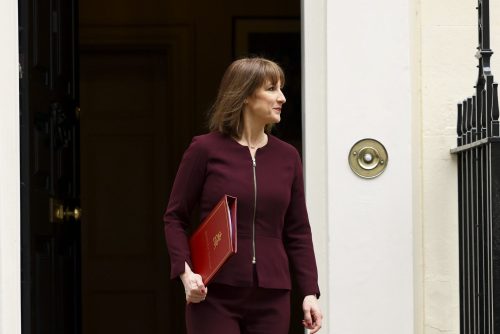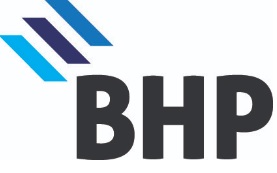Chancellor relies on defence as OBR cuts this year’s growth forecast

Chancellor Rachel Reeves is backing the UK to become a “defence industrial superpower” as she balances the need to drive economic growth in a changing world.
The importance of defence was weaved through her Spring Statement, which gave no ground but rarely sought to expand on previous positions.
However the Office for Budget Responsibility (OBR) has cut its forecast from 2% to 1% for the UK economy this year, before upgrades in the rate of growth in the following years.
“The fiscal rules are non-negotiable”, said Reeves today, adding that headroom has been “restored” by today’s measures. The Chancellor blamed “increased global uncertainty” for the OBR originally projecting a deficit.
Well-trailled cuts of £4.8bn to the welfare budget were used to keep Reeves within her self-imposed fiscal rules, which are expected to come under further pressure through this year and might need addressing in the autumn Budget.
Many businesses have been critical of the additional costs from her first Budget last October that will come into effect next week. Reeves is also under pressure from some Labour MPs concerned that she is following a Treasury orthodoxy that mimics an austerity approach.
Reeves highlighted how the Trump-inspired turbulence offers opportunities for the UK to become a “defence industrial superpower” focused on innovation. Defence spending will be increased, with £2.2bn will be provided to the Ministry of Defence, which is being offset by a reduction in international aid.
Reeves has consistently set out that the Treasury would have one “fiscal event” in a year, and the Spring Statement was not designed to be a second Budget.
The Government’s spending review will be completed in June but Reeves brought forward £3bn of investment for public services in a transformation fund, to “make public services more efficient, more productive and more focused on the user”.
Although there were no new tax-raising measures, £1bn is aimed to be raised by further investment in HMRC’s ability to tackle tax evasion.
Suzy Harris-Milnes, tax partner at BHP said: “The Chancellor of the Exchequer kept her promise to make no major tax announcements during today’s Spring Statement. In fact, there were enough bombshells for business owners in the Autumn Budget, including the increase in NI contributions for employers which comes into effect next week, that businesses need to ensure they’re prepared for in the new tax year.
“However, that being said and linked to the Government’s desire to get more people working, that all businesses should be aware that for apprentices under 25 who are basic tax payers and veterans there are no employer NI contributions.
“With the new tax year starting next week it’s crucial businesses get the right advice to ensure that they are able to not just survive but thrive in what the Chancellor noted as uncertain times.”
Amanda Beresford, chair of West & North Yorkshire Chamber of Commerce, said: “While it is disappointing to see the OBR half its growth forecast to one per cent for this year, it is pleasing to see an improved outlook for the coming years.
“Following the hugely disappointing increases to National Insurance Contributions for businesses in the autumn Budget, it was pleasing that the Chancellor kept her word and did not increase any further axes for businesses during her statement.
“The news that small firms will be able be able to bid for contracts as the Government bolsters defence spending is also a welcome innovation.
“The £1bn allocated in order to get more people back into the workforce is one that businesses will welcome as they continue to wrestle with recruitment challenges. We await further details on how this money will be used with interest.
“The £600m allocated by the education secretary to train more construction workers is good news for our region as we prepare to embark on a series of major regeneration ad infrastructure projects such as York Central and Mass Transit.
“The government must focus on reducing the cost pressures for businesses, boosting investment and exports. Our research shows 82 per cent of businesses will be impacted by the NI hike.
“In addition, the financial impact of the Employment Rights Bill has yet to be assessed by the OBR, but they expect it to be negative. The threat of US tariffs also looms large.
“With rising costs and sky-high levels of taxation making investment decisions very difficult.”









